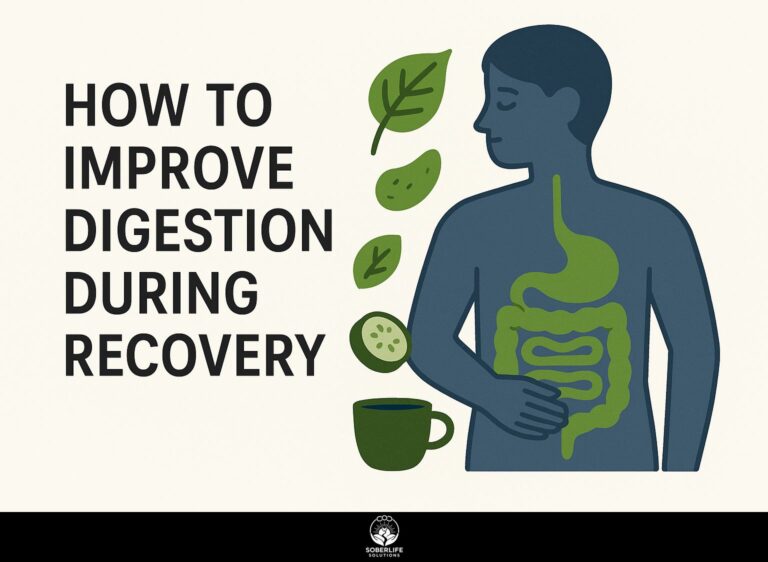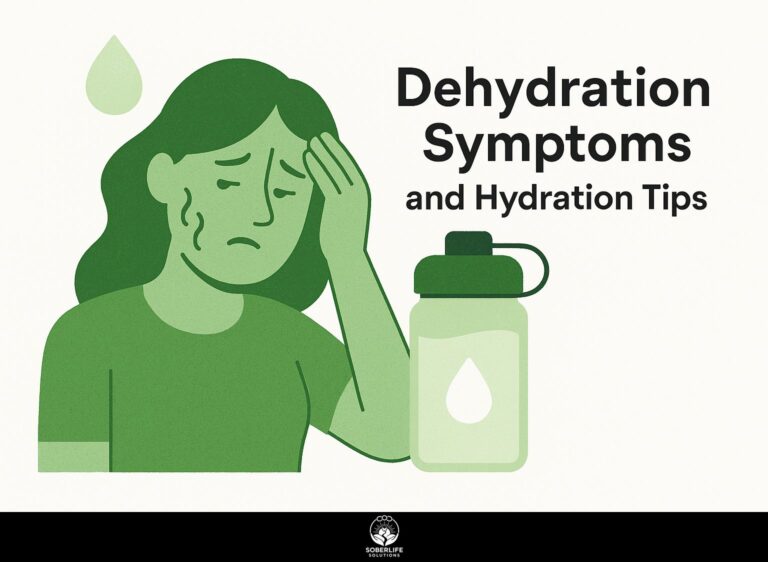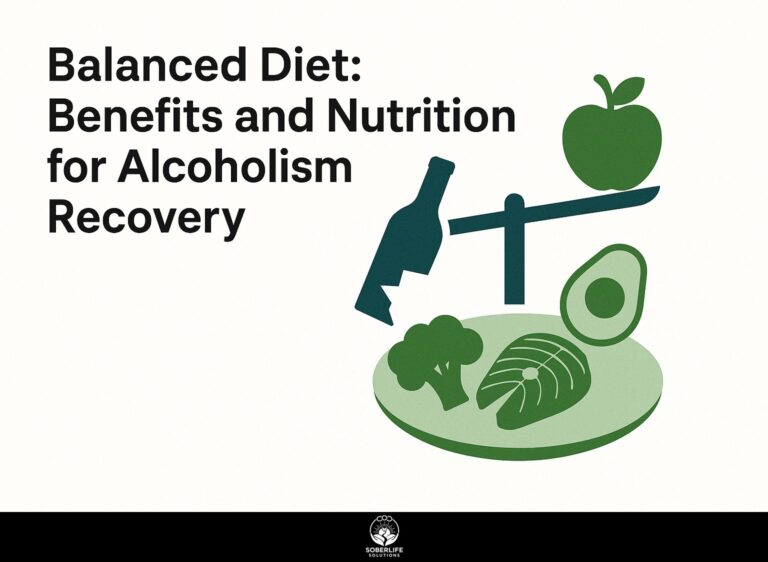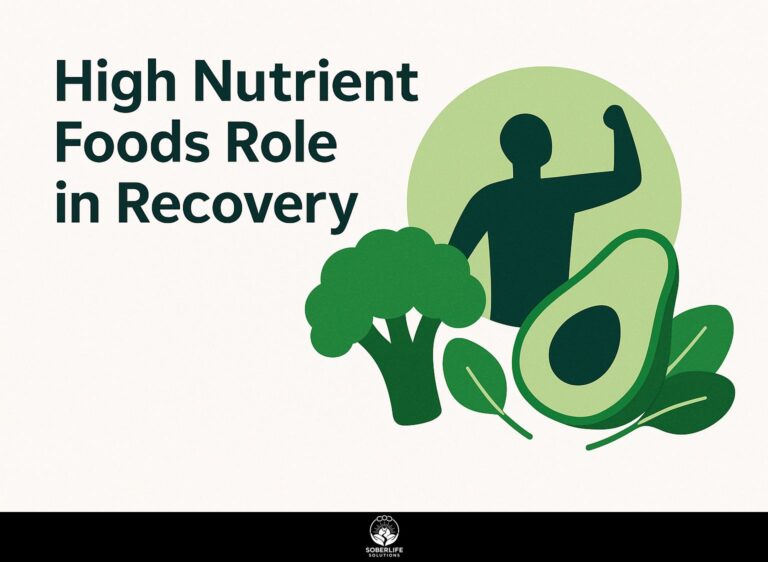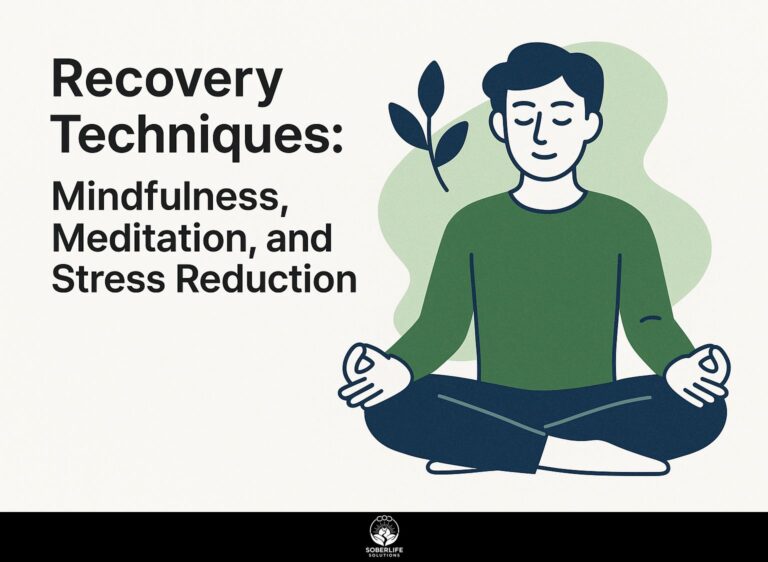Social Life Challenges Solutions in Recovery
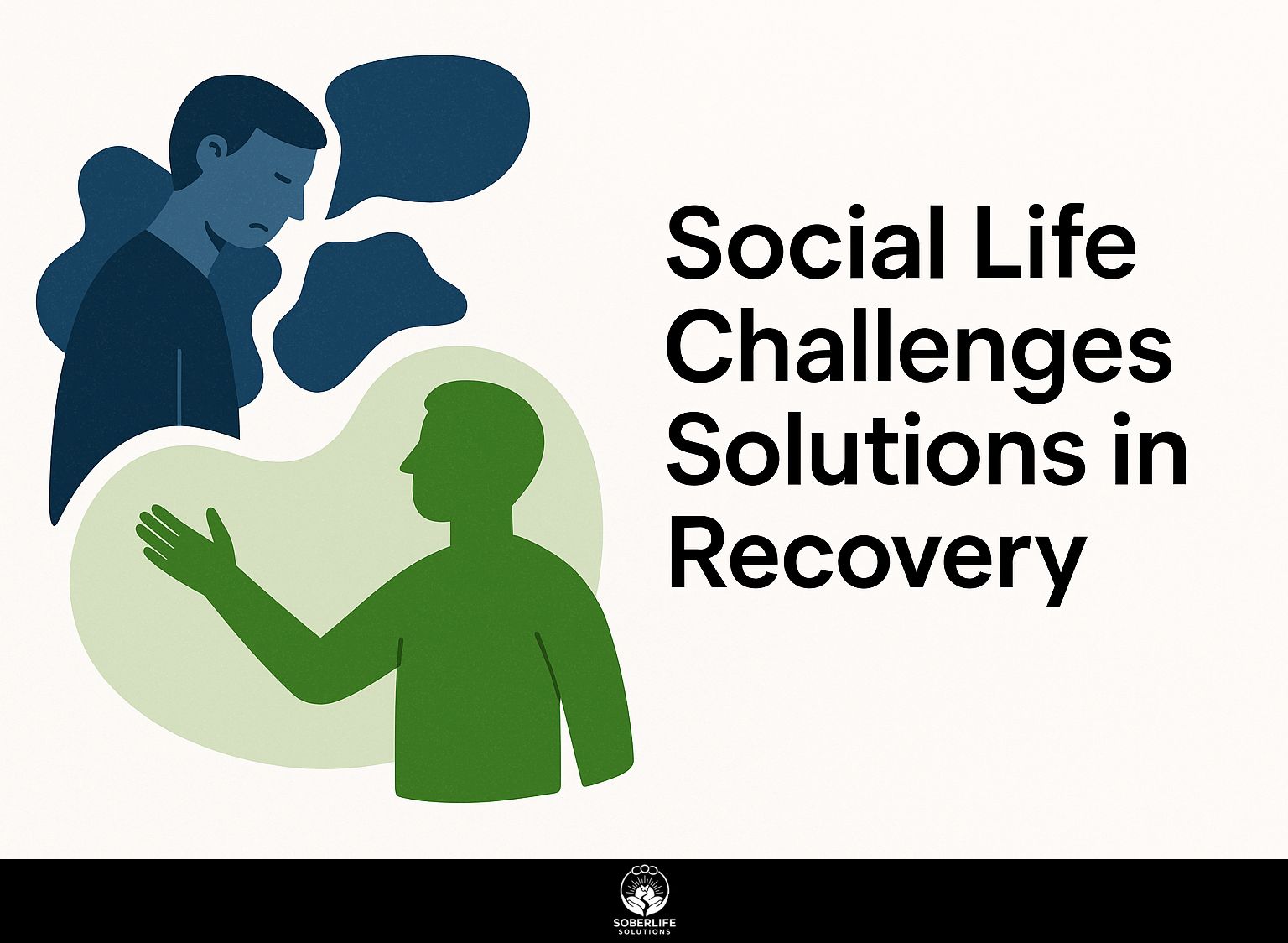
Dealing with social situations after getting past substance abuse can be difficult, especially when family relationships and what society expects are involved. The challenges of maintaining relationships and managing peer pressure often leave many feeling isolated. This article looks at practical ways to address common social challenges, helping people and families to create connections and develop a supportive community during recovery. Learn ways to make your social interactions more enjoyable.
Key Takeaways:
Common Social Life Challenges
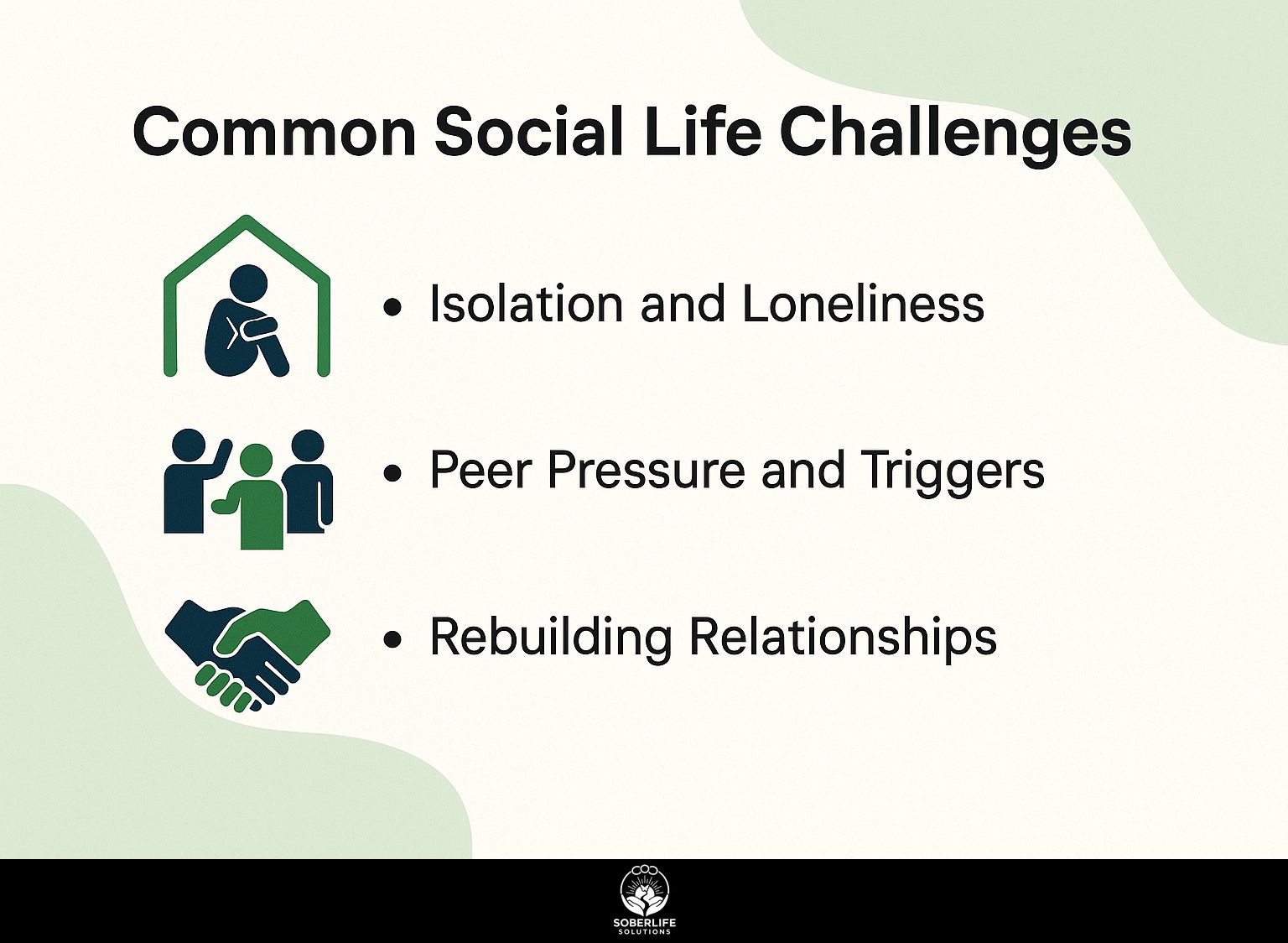
People who are recovering often deal with social difficulties that can slow their improvement and affect their feelings. It’s essential to recognize how sobriety improves mental health during this journey.
Isolation and Loneliness
Isolation affects over 50% of individuals in recovery, leading to increased risk of relapse and emotional distress.
Support groups like Al-Anon and Nar-Anon are important for fighting this feeling of being alone. By bringing together people with shared experiences, these groups create a feeling of community and connection.
Research shows that participants in these support systems are significantly more likely to maintain recovery, with one study indicating a 30% improvement in long-term sobriety rates. For those interested in a comprehensive overview, this article from Frontiers in Psychology explores the pathways to recovery and psychological well-being, providing critical insights into the effectiveness of support groups.
Going to meetings regularly provides emotional support and practical ways to manage recovery, helping members build a strong community network.
Peer Pressure and Triggers
Moving through social settings can often lead people recovering from addiction to face peer pressure and situations that might threaten their sobriety.
To deal with these triggers effectively, people can try different techniques.
- To stay safe, first recognize situations with high risk, such as parties where alcohol is available, and either stay away from these events or plan how to handle them beforehand. Insights from Quora suggest prepared strategies can greatly aid in managing peer pressure.
- Practicing assertiveness can be beneficial; rehearsing responses with a therapist can instill confidence. Related insight: SMART Recovery offers systemic benefits that complement assertiveness training.
- Developing a support network of friends who respect your sobriety can help reinforce positive choices.
- Engaging in activities that don’t revolve around alcohol, such as hobby groups or fitness classes, creates safer environments for socializing.
Rebuilding Relationships
Rebuilding relationships is essential for maintaining recovery, but it requires honest communication and emotional regulation skills.
To help you reconnect with friends or family, try setting up regular meetings, like once a month.
Using tools like Zoom or Google Meet can make online meetings easier for everyone.
Consider engaging in family treatment programs, which provide structured environments for open dialogue. According to the University of San Francisco, participating in Marriage & Family Therapy, MA programs can offer valuable insights and frameworks for making these family interactions more productive.
Therapy can help by giving you ways to talk and manage feelings so that discussions stay helpful and positive.
Strategies for Overcoming Challenges
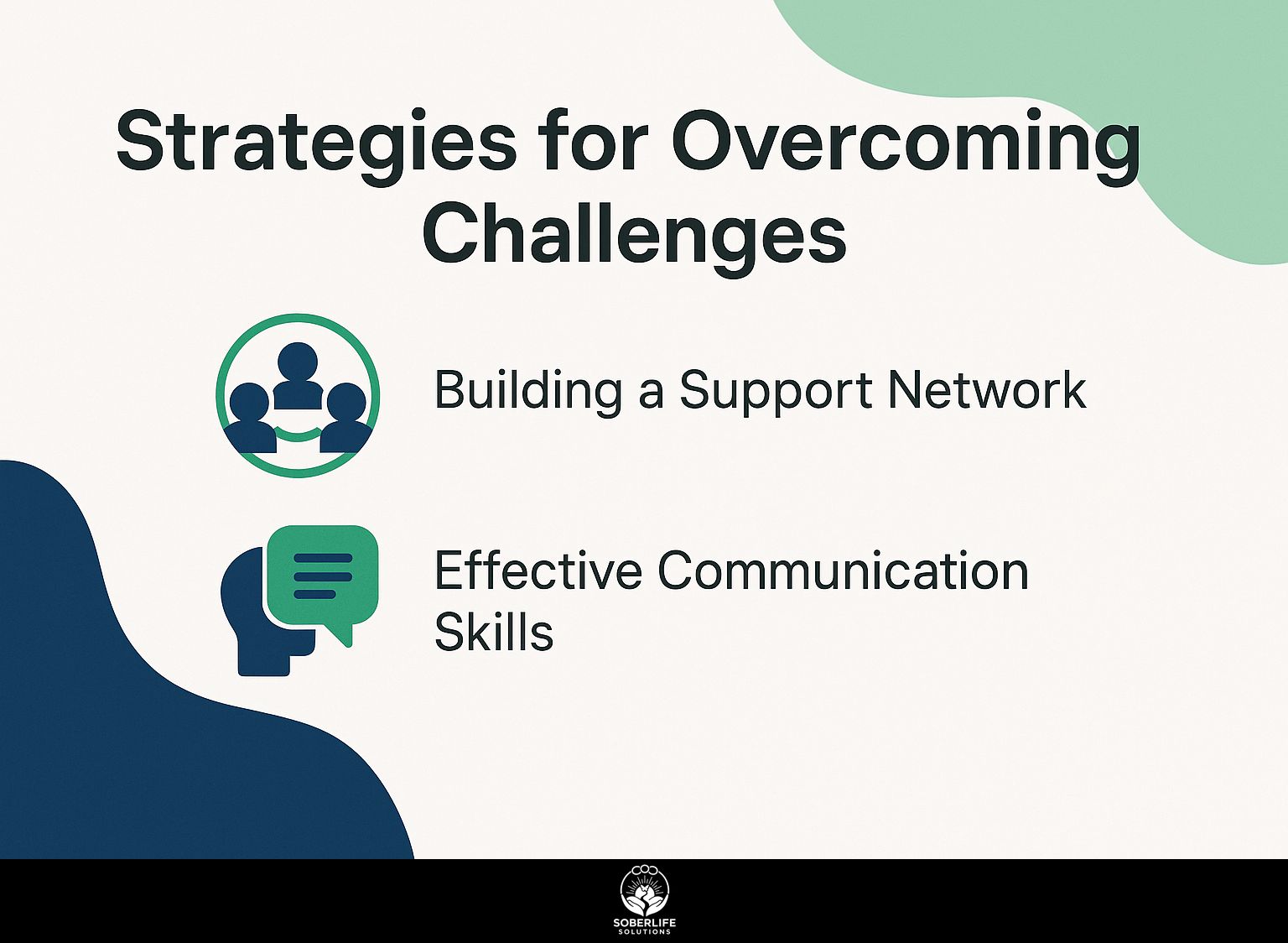
Practical approaches are important for addressing social issues during recovery. Emphasizing the importance of grounding techniques can be particularly beneficial (our guide on grounding techniques in recovery explores how these methods can enhance stability and focus).
Building a Support Network
Building a strong support network can greatly improve recovery resources and offer emotional help during difficult times.
Start by engaging with local recovery groups, often available through community centers or churches, where 75% of participants report feeling less isolated.
Online forums like Substance Abuse and Recovery or Reddit’s r/stopdrinking offer a platform for connecting with others facing similar challenges.
Consider utilizing apps such as Sober Grid or MeetUp to find events and meet like-minded individuals.
Going to meetings often or joining in discussions can help people stay responsible and build strong connections needed for ongoing recovery. For an extensive understanding of the importance of such support systems, our deep dive into A.A. meetings explores their role in fostering responsibility and connection.
Effective Communication Skills
Building strong communication skills is important for sharing needs and limits during recovery.
To get better at your communication, focus on two main methods: listening carefully and speaking with confidence.
Begin by really paying attention when you talk to others-this means focusing completely, getting what they’re saying, and giving thoughtful answers. During a conversation, repeat back what the other person said to make sure you understood correctly.
Next, develop assertiveness by expressing your opinions directly yet respectfully. Try using ‘I’ statements, such as ‘I feel overwhelmed when our plans change last minute.’
Regularly practicing these techniques in safe environments, like with friends or in support groups, can lead to more confident and clear communication.
Engaging in Healthy Social Activities
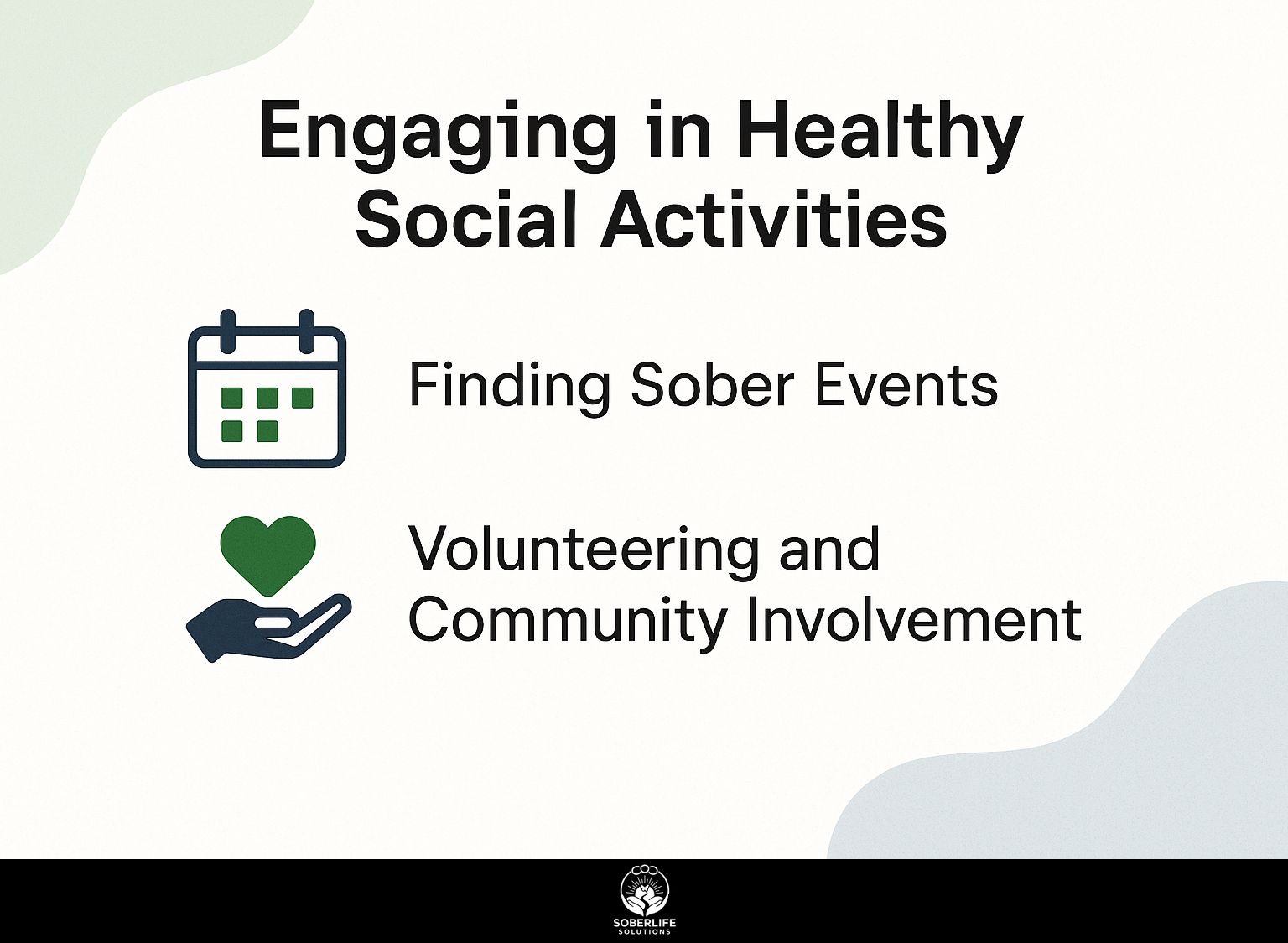
Joining healthy social activities can greatly help the recovery process and create a sense of community. For those interested in specific group activities, participating in Recovery Pow Wows offers a unique opportunity to engage and connect with others in a meaningful way.
Finding Sober Events
Finding activities that don’t involve alcohol can be very helpful for people in recovery who want to connect with others and build relationships without the temptation of drugs or alcohol.
To find alcohol-free events, begin by checking websites like Meetup and Eventbrite, which list different local events. You can also check community boards at coffee shops or libraries for announcements.
If you’re motivated to create your own event, consider hosting a game night or a hiking group-these activities promote interaction and help build support networks.
Joining local recovery groups can help you find substance-free social activities, allowing you to meet others with similar experiences.
Volunteering and Community Involvement
Volunteering is a satisfying way to build relationships and help the community while supporting recovery work.
Organizations like Habitat for Humanity or local shelters often welcome volunteers, offering roles that engage and build community.
Mark, who is recovering from addiction, found meaning by helping with building projects. This increased his confidence and helped him create a trustworthy circle of friends. Sarah volunteered at a food bank and made connections with others who are also recovering.
These opportunities help build social connections and give a feeling of accomplishment, which is important for staying sober over time.
Maintaining Boundaries
Maintaining healthy boundaries is essential for sustaining relationships and supporting ongoing recovery.
To effectively set boundaries, start by clearly identifying your limits. Use ‘I’ statements to express your needs, such as:
- `I feel overwhelmed when you call late at night, and I need to unplug by 9 PM.’
Practice self-care techniques, like journaling or meditation, to reinforce these limits. For example, if a friend consistently borrows money and it makes you uncomfortable, communicate:
- `I cannot lend money right now,’ while suggesting alternatives.
These actions help build respect and awareness, which are good for both sides in the relationship.
Long-term Social Skills Development
Building social skills over time is important for lasting recovery and better interactions with others.
To improve social skills, try participating in organized events like workshops. These usually include role-playing situations to help you practice communication.
Therapy groups provide a safe environment for social experimentation, allowing participants to learn from each other’s experiences. Research shows that individuals who partake in such training frequently report a notable 30% increase in their communication skills, leading to better relationships and reduced relapse rates.
By consistently participating in these programs, those in recovery can build confidence and develop strategies for real-world social settings.
Frequently Asked Questions
What are some common challenges people face in their social life during recovery?
Some common problems include feeling alone, having trouble making new friends, and handling social events without using substances.
How can I address feelings of isolation during recovery?
One solution is to join a support group or engage in activities that align with your interests. This can help you connect with others who are also in recovery and create a sense of community.
What can I do if I struggle to make new friends during my recovery?
Think about joining a group focused on hobbies or interests, volunteering, or signing up for a class where you can meet others with similar passions. You can also reach out to old friends and explain your situation to them.
How can I maintain my sobriety in social situations?
It’s important to have a plan in place for social events, such as bringing a sober friend with you, having an exit strategy if you feel uncomfortable, and setting boundaries for yourself. It’s also helpful to practice saying “no” to offers of alcohol or drugs.
What if I feel pressure from others to drink or use substances during recovery?
It’s important to remember that you are in control of your own choices and that it’s okay to say no. You can also try redirecting the conversation to a different topic or removing yourself from the situation if necessary.
Are there any online resources that can help me with social life challenges during recovery?
Yes, there are plenty of online support groups, forums, and resources that can help you manage social activities while recovering. These can offer a safe and supportive place to interact with others and receive guidance.

